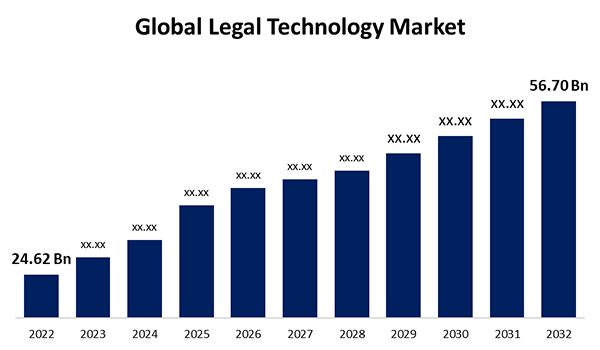10 Legal Technology Trends Changing Legal Department
To just start with some groundbreaking stats!
Do you know that the legal departments are going to replace 20% of their generalist lawyers with some non-lawyer staff? Or that the spending on legal technology is going to go threefold by the year 2025.
Well, a lot of the things happening in the legal system right now. And it would not be wrong to say that the future of legal departments will majorly be dominated by some technical advancements.
So, in this read, I will walk you through X legal technology trends that are changing the legal departments. And, along with that, we will also explore how probate legal services can help you excel in your overall case management. Also, learn about Making Legal Services More Accessible in this guide.
So, What are the X Best Legal Technology Trends?
New technologies are merging every other year. And as legal professionals are becoming more open to technology, more companies are offering some smart solutions to tackle industrial needs.
Below are some of the latest legal technological trends that are transforming the legal landscape.
Legal Case Management Software
Emerging technologies are changing the whole legal procedure of processing, organizing, and managing case files and data.
Where in the previous system, it was all done manually, the current legal case management is highly dominated by some cloud-based applications to boost productivity and maximize the profits of law firms.
These law firm document management solutions centralize case files, communications, billing, and scheduling by providing a unified platform..
This automates most of the professional management tasks and significantly reduces the risk of potential human error while allowing legal professionals to focus on more high-value work.
Virtual Legal Assistants
Virtual legal assistants (VLA) as the name suggests are emerging AI and NLP technologies that legal firms are leveraging to provide real-time support for legal matters.
These virtual assistants understand the legal terms and efficiently provide quickly tailored legal advice, which is also much more cost effective than hiring a professional legal assistant.
VLAs can perform various complex tasks such as scheduling events, managing client appointments, and sending reminders for upcoming due dates and payments.
It allows legal professionals to spend more time with in-depth case analysis and gathering supporting evidence, which are critical components of a successful legal representation.
Automation
Technologies are automating the over-repetitive and time-consuming tasks. This includes tasks such as document drafting, client intake processes, and compliance checks.
It also helps in quickly identifying the crucial information from a document, while reducing the overall cost for manual processing.
Do You Know?
According to a report by Gartner, legal departments are going to automate 50% of the legal work, including the major transactional ones, by the year 2025.
Litigation Management
Litigation management is always a complex process, this includes proper monitoring of all the major activities such as deadlines, court dates, and other relevant information.
And this is where litigation management software comes into play as a comprehensive tool for case administration, document storage, and cross-team collaboration.
Client Data Protection
Data protection is always a top concern for any law firm. Therefore, the proper adoption of smart encrypted technology is a crucial component in terms of data security and privacy.
These emerging technologies aim to protect client’s highly confidential data, prevent any kind of data breach, and comply with the data protection regulations set by the centralized authorities.
Smart Legal Contract Management
Traditional contract management is time-consuming, with a lack of transparency and risk of non-compliance. Therefore, this growing trend of incorporating the latest technology is providing an exceptional alternative for contract management.
It leverages blockchain technology to execute most of the legal agreements by embedding contract terms directly into the codes, eliminating the need for human intervention.
Moreover, this level of automation makes the whole system faster along with some precise execution of contractual obligations.
Identity Management
Identity management has foreseen massive growth in recent years. This emphasizes secure access control of digital identities and authentication for law firms.
Integrating biometric technology provides a more secure alternative to the traditional system. This also helps law firms access rights and track user’s activity for security and compliance purposes.

Immersive Technology
Immersive technologies such as Virtual and Augmented Reality are also playing a major role in transforming the legal industries. It enables law firms to create an immersive courtroom scenario, allowing legal professional to practice their arguments in one go.
And, in addition to training purposes, these technologies also facilitate a negotiation session, where the digital avatars from both parties interact in a simulated environment. This significantly reduces the need for face-to-face meetings, while improving the efficiency of dispute resolution.
Robotic Process Automation (RPA)
RPA helps legal industries to manage most of their daily administrative procedures. These bots have the ability to read legal contracts, perform checks, and analyze records across various systems.
Advanced Computing
Another major tech-driven trend in the legal industries is the emergence of quantum or advanced computing. These cloud-based solutions enable law firms to maintain a centralized repository.
This also allows legal teams to quickly and accurately store and access data from any location, building a faster and more secure system for the clients.
To Put It All Together
The emergence of some smart technologies is revolutionizing the way legal industries function. By providing such an enhanced and secure legal system that directly resonates with the clients and legal profession within the firms. Implementing these emerging techs into any law firm can provide them with some competitive edge in the legal world while allowing them to provide the best services to their clients.
